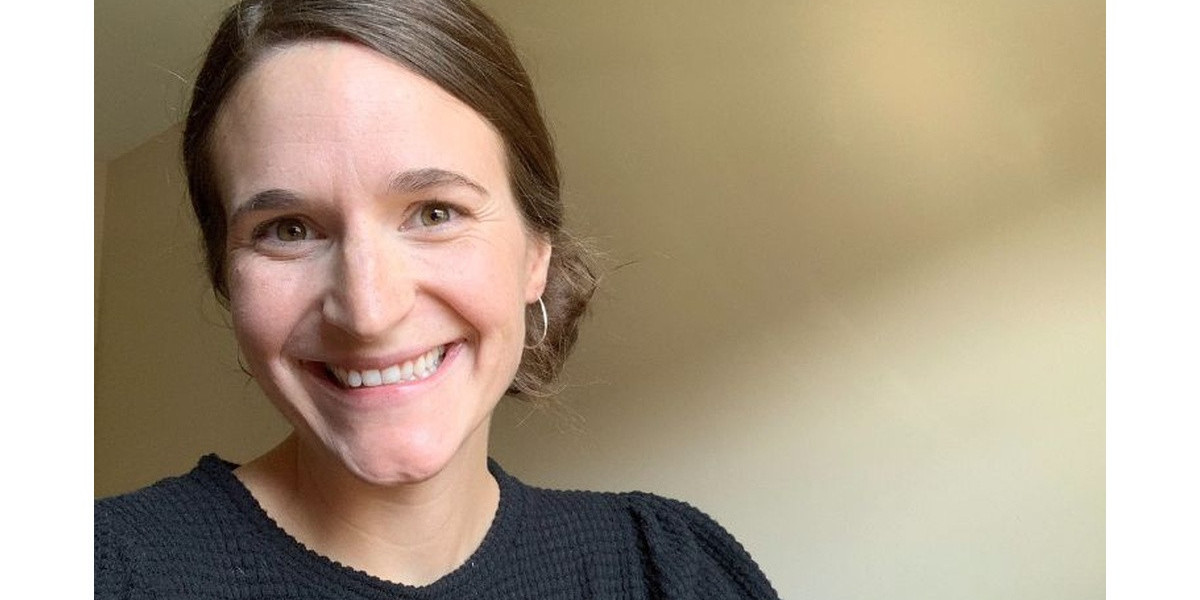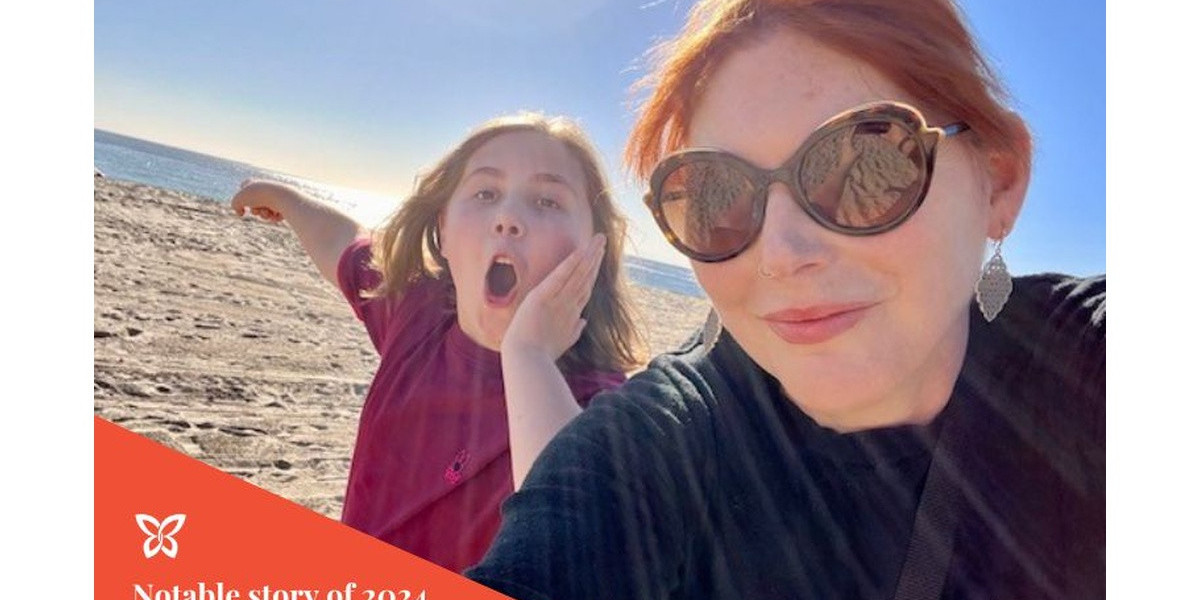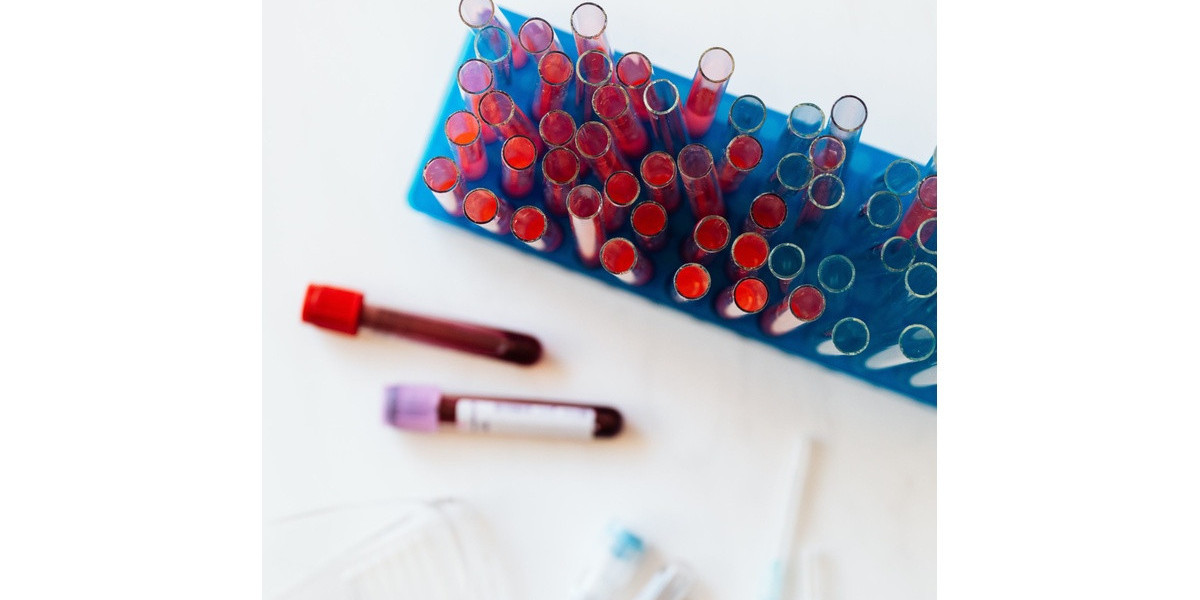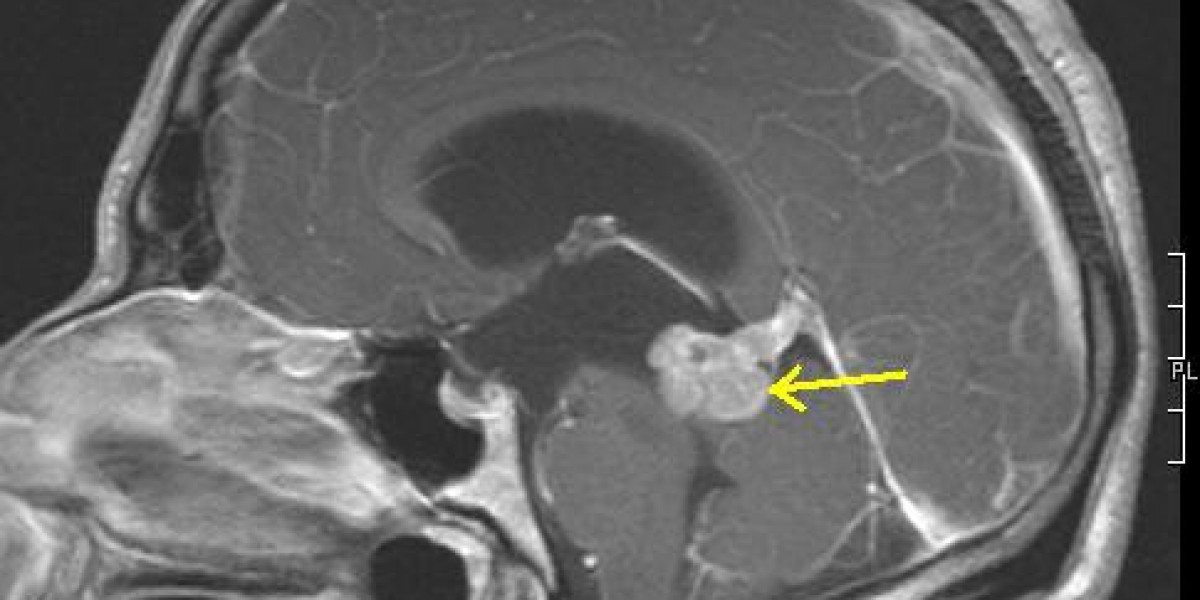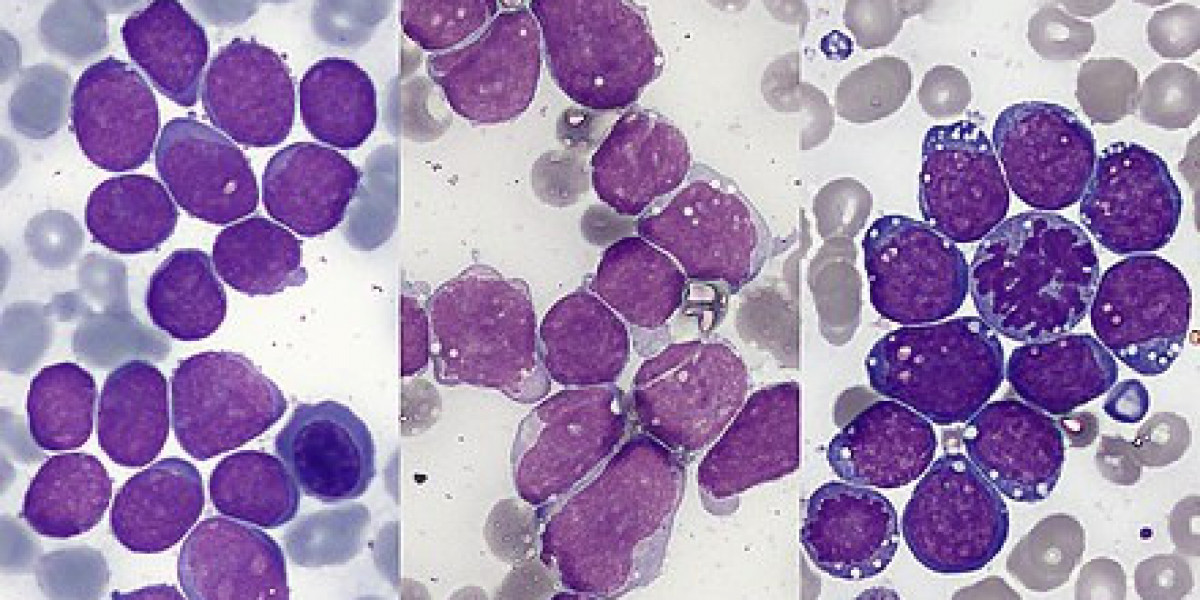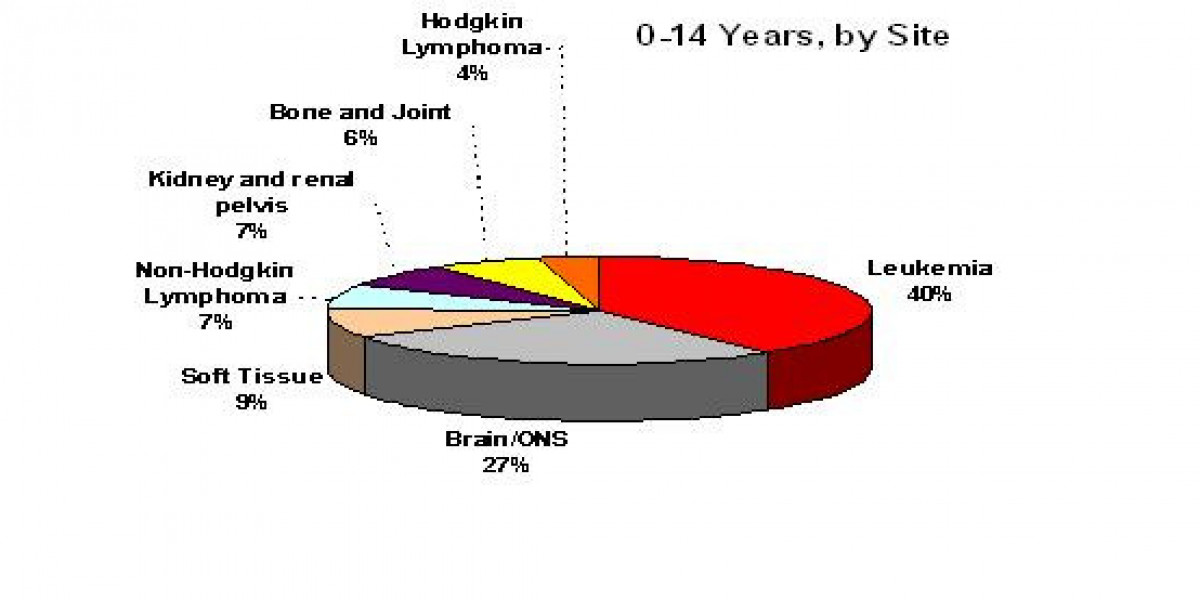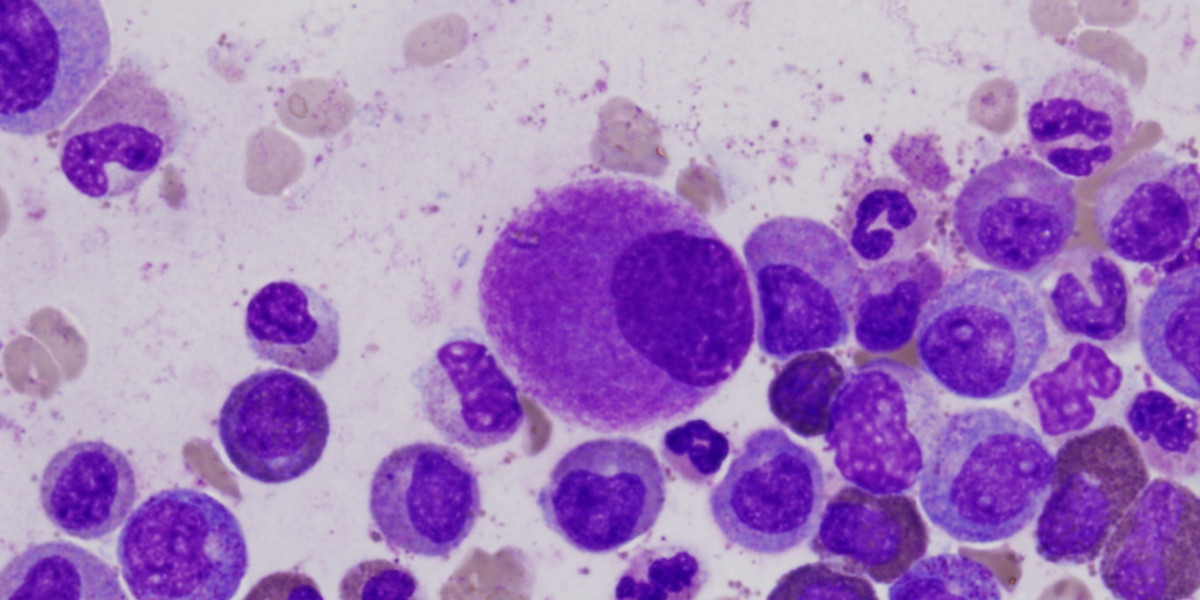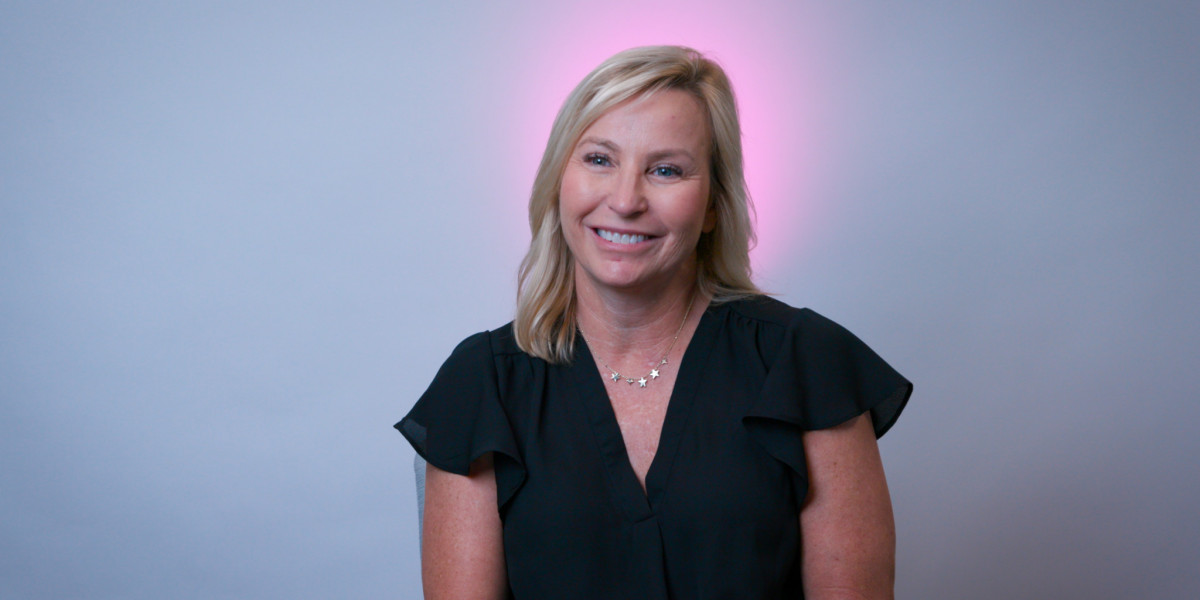Blogs>Giving nutrition advice for cancer care to others and herself
HowdietitianAlison Tierney managed her breast cancer treatment side effects with plant-basednutrition— and how her insights can help you, too
Alison Tierney graduated from college with a business degree, but she was drawn to nutrition – specifically cancer dietetics – as a field to pursue professionally.
There was good reason for that: During her undergraduate years, Alison’s mother and godmother (who is also her mother’s cousin) were diagnosed with breast cancer and her grandfather was diagnosed with liver cancer. She also had an earlier family history of breast and uterine cancer for one grandmother and lung cancer for the other. “As more of those diagnoses started to hit our family, my interest shifted tooncologynutrition,” Alison says.
She went back to school for degrees in dietetics and nutrition, then became a registered dietitian and board-certified oncology nutritionspecialist, working at three cancer centers. Alison then openedWholesome LLC, her own telehealth cancer dietetics practice in suburban Milwaukee, advising people about evidence-based nutritional approaches to help ease cancer side effects, tolerate treatments better, improvequality of life, and potentially reduce risk ofrecurrence.
In April 2022, shortly after Alison had stopped breastfeeding her second child, her OB/GYN found a lump during a breast exam. Because it was so soon after breastfeeding had ended, the lump could have been a cloggedmilk duct, so she went home to monitor it.
Alison remained concerned about the lump and reached out to her doctor a few weeks later. She was given an ultrasound,mammogram, andbiopsyfor what was thought to beDCIS, astage0noninvasivebreast cancer found in the lining of the milk ducts. In July 2022, she had a doublemastectomy, withDIEP flapreconstruction. She was 33 years old and had two young children, a 14-month-old and a four-year-old.
The pathology test results fromsurgerychanged Alison’sdiagnosisto stage I invasiveductal carcinoma. Her breast cancer was positive forestrogenandprogesteronereceptors and HER2 (human epidural growth factor 2).Genetic testingshowed Alison also had a CHEK2geneticmutation, which can increase breast cancer risk.
“With my extensive family history, I knew that I was not invincible from this disease, but I always said that if I’m ever diagnosed, I want to be able to look back and say I did what I could,” she says.
After surgery, Alison hadchemotherapy,immunotherapy, andhormonal therapy. Throughout treatment, she used her knowledge ofnutritionin cancer care to help herself.
She changed some aspects of her diet to ease GI symptoms, chiefly constipation andnausea. For constipation (which can worsen nausea), she focused daily on using ground flaxseed, eating foods that had plenty of fiber, drinking adequate water and having regular physical activity. When she felt nauseated, she ate ginger and peppermint, which enabled her to eat other foods. She avoided greasy, fatty, fried and spicy foods because they can contribute to nausea. Alison also increased her consumption of cruciferous vegetables such as broccoli sprouts and cauliflower, along with dark green leafy greens to strengthen herimmune system.
"Nutrition played a huge role in how well I got through chemo and immunotherapy," she says.
Overall, she followed a plant-based diet, eating mostly fruits, vegetables, whole grains, beans, nuts, and seeds. She stayed physically active by walking her daughter to school, taking part in cycling classes when she felt able to, andyoga.
With a therapist’s help, Alison also focused on her mental and emotional health to better managestressand develop healthy boundaries in her work and personal life. “That journey has informed my nutrition choices with the focus of controlling the controllable. That’s my motto to this day.”
Alison gives that same advice to her clients. By understanding what’s controllable, her clients learn how they can use nutrition to help support them during treatment and beyond, lessen side effects, and potentially reduce the risk of recurrence as best they can, she says.
Although she knew a lot about the needs of people with cancer before her breast cancer diagnosis, Alison says her experience as a patient changed her work dramatically. Clients tell her how much it helps to talk with someone who’s been through the same journey, who hears what they are saying, and validates their emotions.
“It’s not that I didn’t do those things before,” she says. “It’s just a different perspective that I can bring to it, and a different level of empathy than I was able to bring before.”
Alison’s personal nutrition choices are part of her growth too. Nine years ago, after reading research on cancer and nutrition, she started eating more plant-based foods because studies showed they reduceinflammation, which can cause disease.
She wanted to see if dietary changes could help with difficulties she and her husband were having while trying for a pregnancy. Soon she cut out animal products entirely, hoping to get pastinfertilityand the hormonalconditionPCOS (polycysticovarysyndrome), which she had. Alison believes that change helped her become pregnant with the couple’s first child, who is now eight years old.
When giving professional nutrition guidance, Alison encourages clients to increase the plant foods they eat, but she doesn’t pressure them to give up meat, dairy, eggs, or other animal products.
“The current recommendations from international and national agencies are to make plant-based foods a predominant part of your daily diet. That doesn’t mean getting rid of all animal products like some people might choose to do,” Alison says.
“That was a very personal choice for me, but it doesn’t mean that it’s appropriate for everybody.”
Nutritional approaches can help before, during, and after breast cancer treatment or while living with cancer. Alison offers these suggestions:
Tip #1: When looking to improve your diet, try adding foods before removing others. Is your lunch usually a processed meat sandwich with a bag of chips? Alison suggests adding lettuce, tomato, or onion to the sandwich and enjoying a piece of fresh fruit with your meal to increase healthful fiber and phytonutrients. Regularly including vegetables and fruit in your meals may also gradually reduce foods you might want to minimize.
Tip #2: Know yourself as an individual. Most people do better by making slow and steady changes, which are more sustainable than an all-or-nothing change. “Know what motivates and inspires you,” says Alison. “What motivates me isn’t necessarily going to motivate somebody else.”
Tip #3: Work towards increasing the predominance of whole, plant-based foods in your diet. Add greens to pasta or a sandwich, or adapt a meat sauce by making it with half ground meat and half beans. “This is a recommendation for anybody that’s looking to reduce their risk of developing cancer in the first place, but also to reduce their risk of recurrence,” Alison says.
Tip #4: Focus on your lifestyle as a whole. It takes more than changing one factor, such as nutrition, if other lifestyle elements such as emotional health or physical activity need attention as well.
“Nutrition is essentially one of the bridges to help us get to do what we want to do…living the life that we seek to live during treatment and definitely into survivorship,” says Alison.
DISCLAIMER:
The views and opinions of our bloggers represent the views and opinions of the bloggers alone and not those of Living Beyond Breast Cancer. Also understand that Living Beyond Breast Cancer does not medically review any information or content contained on, or distributed through, its blog and therefore does not endorse the accuracy or reliability of any such information or content. Through our blog, we merely seek to give individuals creative freedom to tell their stories. It is not a substitute for professional counseling or medical advice.
This article was supported by the Grant or Cooperative Agreement Number 1 U58DP006672, funded by the Centers for Disease Control and Prevention. Its contents are solely the responsibility of the authors and do not necessarily represent the official views of the Centers for Disease Control and Prevention or the Department of Health and Human Services.
When to have follow-up visits
Learn what to expect with follow-up visits and tests in the first few years after active treatment for early-stage breast cancer.
FISH tests
A FISH test is a lab test performed on tissue taken from a biopsy or breast cancer surgery, that can confirm breast cancer’s HER2 status if other test results are inconclusive.
Early-stage breast cancer trial search
Use this tool to find early-stage breast cancer clinical trials across the United States.
Making meals healthy
With help and the right information, making healthy food choices can actually be quite simple and save you money and time.
Tips for healthy eating
Transitioning from knowing healthy foods to crafting nutritious meals involves multiple steps. Access our advice on sourcing and cooking healthy foods while managing breast cancer treatment side effects.
Nutrition and exercise
Maintaining a healthy weight and diet is crucial for preventing illness and boosting mood, even though consistently following a well-balanced diet and exercise regime can be challenging.
Nausea and vomiting
Nausea is a feeling of sickness or discomfort in the stomach that may come with an urge to vomit. It's a common side effect of some types of breast cancer treatment.
Side effects
Side effects are unwanted reactions to medical treatments and can be among the most upsetting parts of being treated for breast cancer. There are many things you can do to help prevent and manage side effects.
Metastatic breast cancer and diet
It can be overwhelming to face a metastatic breast cancer diagnosis. The good news is that it doesn’t have to be complicated to figure out a healthy diet that helps you feel good.
Wellness & Body Image
A breast cancer diagnosis can bring a flood of feelings about how your life and your body may change. Here, you can learn self-care steps that can help you feel calmer and more supported.
Sign up to receive emotional support, medical insight, personal stories, and more, delivered to your inbox weekly.
We'll send support straight to your inbox.
Robin Warshaw
Alison Tierney
Tagged:
Was this page helpful?
Living Beyond Breast Cancer is a national nonprofit organization that seeks to create a world that understands there is more than one way to have breast cancer. To fulfill its mission of providing trusted information and a community of support to those impacted by the disease, Living Beyond Breast Cancer offers on-demand emotional, practical, and evidence-based content. For over 30 years, the organization has remained committed to creating a culture of acceptance — where sharing the diversity of the lived experience of breast cancer fosters self-advocacy and hope. For more information,learn more about our programs and services.
Living Beyond Breast Cancer
40 Monument Road, Suite 104
Bala Cynwyd, PA 19004
©2025 Living Beyond Breast Cancer
Originally published on The Patient Story: https://www.lbbc.org/blog/giving-nutrition-advice-for-cancer-care-to-others-and-herself
